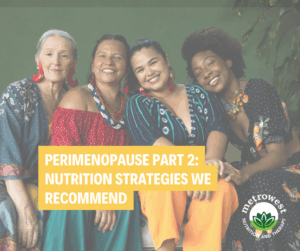
Food-Related OCD: How Does Nutrition Counseling Help?
Food can be comforting, social, and nourishing, but for some people, especially those with food OCD, it is the complete opposite.
Individuals with food-related obsessive-compulsive disorder (OCD) experience intrusive, distressing thoughts and ritualized behaviors centered on eating, food purity, contamination, or rigid “safety” rules.
People with food OCD might avoid whole food groups, spend hours planning or checking meals, refuse to eat foods prepared by others, or compulsively research “safe” ingredients. These behaviors look similar to both classic OCD and certain eating disorder patterns, and they can be physically and emotionally exhausting. Learn more about the relationship between OCD and eating disorders here: International OCD Foundation+1.
Ready for Support? Get in Touch to Start Working Together
Understanding the overlap
Food-focused OCD sits at an intersection: it shares the anxiety and ritualizing of OCD, but it can also mirror eating disorders such as orthorexia (a fixation on “pure” or “clean” eating) or the ritualized food rules seen in anorexia and ARFID.
This overlap matters. Treatment that only targets one piece (for example, only addressing restrictive eating or only doing exposure therapy for contamination fears) can miss the full problem. A collaborative, multidisciplinary approach is often far more effective. (Source)
Is food noise a bad thing? Here’s what we think.
What nutrition counseling does — and doesn’t — do
Nutrition counseling for someone with food-related OCD isn’t simply giving a meal plan or suggesting foods to add. A skilled dietitian who understands mental health will:
- Assess for safety and medical risk. Identify weight changes, nutrient deficiencies, or medically necessary dietary needs.
- Collaborate with mental health treatment. Work alongside therapists (CBT/ERP), psychiatrists, and primary care to align goals and avoid conflicting messages.
- Target rigid rules, not reinforce them. Instead of validating or adding new “safe” foods, a counselor uses gradual reintroduction (i.e,. exposure), flexible meal structures, and behavioral strategies to reduce avoidance (and ultimately decrease OCD symptoms)
- Address misinformation and fear-based beliefs. Gently correct myths about foods using evidence and practical experiments.
- Monitor nutrition status and correct deficiencies. Where compulsive restriction causes malnutrition (e.g., low B12, vitamin D, omega-3s), targeted correction can improve energy, cognition, and mood.
Why nutrition matters for OCD symptoms
Malnutrition is linked to cognitive rigidity (Source). Likewise, it increases symptoms of OCD. Beyond replacing missing nutrients, there’s growing scientific evidence that what we eat affects brain function, mood regulation, and the way we respond to stress. Research into the gut-brain axis shows that diet shapes the microbiome, inflammation, and neurotransmitter pathways.
All of which influence anxiety and compulsive behaviors. Nutrition interventions aren’t a replacement for therapy, but they can make psychological treatments more effective by stabilizing mood and cognition and improving physical resilience.
Evidence for lifestyle and dietary interventions
While large-scale, OCD-specific nutrition trials are limited, evidence from mood and anxiety research is encouraging. Recent randomized trials of lifestyle therapy (dietary guidance + activity) have shown clinically meaningful reductions in depressive and anxiety symptoms and, in some cases, performed comparably to psychotherapy when delivered in structured programs.
This supports the idea that diet-focused counseling can be a legitimate component of mental health care when properly integrated with therapy. These trials point to the feasibility and potential effectiveness of trained dietitians as part of mental-health treatment teams. (Source)
How nutrition counseling helps in food-related OCD
Here are concrete examples of what a dietitian can do when working with someone who has food-related OCD:
- Gradual food exposure plans: Using a hierarchy, food exposure therapy starts with mildly feared foods and progressively increases challenge while tracking anxiety and rituals — similar to ERP but with a nutritional lens.
- Flexible meal scaffolding: Building meals that meet nutrient needs but include choices and variability to weaken rigid “rules.”
- Cooking-and-sharing interventions: Supervised meal prep or eating with others (in person or via telehealth) to reduce avoidance and build confidence.
- Education on balanced nutrition vs. fear-based rules: Replace black-and-white food beliefs with practical, evidence-based guidance.
- Monitoring and supplementing deficiencies: If lab work shows low B12, vitamin D, or omega-3s, appropriate supplementation can be coordinated with medical providers. (Source)
How to find the right professional
Look for a licensed dietitian or nutrition professional with experience in mental health or eating disorders. Ideally, they’ll have established relationships with therapists who use CBT/ERP for OCD — integrated care is best. If someone is underweight, medically unstable, or experiencing severe disordered eating, prioritize medical and specialized eating-disorder services first.
Nutrition counseling alone isn’t enough
Nutrition counseling is a powerful tool, but it shouldn’t be the only one. OCD is a mental illness and requires a full team approach including a psychotherapist and often, a psychiatrist or psychiatric NP. Seek immediate medical attention when:
- Restrictive eating causes significant weight loss, fainting, or electrolyte problems.
- Severe compulsions prevent work, school, or basic functioning.
- Suicidal ideation or medical emergencies are present.
In those cases, immediate medical and psychiatric care is essential. Nutrition counseling is one part of a broader treatment plan.
Practical tips for loved ones
If you’re supporting someone with food-related OCD: avoid shaming or arguing about rules; offer to help them find a qualified dietitian or therapist; and encourage small, supported steps (e.g., joining a meal or agreeing to one new food). Recovery is usually gradual and requires compassion and consistency.
In Summary
Food-related OCD sits where behavior, belief, and biology meet. Nutrition counseling — when delivered by an informed, compassionate professional and integrated with evidence-based therapies like CBT/ERP — can help break rigid rules, restore nutritional health, and support the broader therapeutic work of reducing obsession and compulsion. If you or someone you love is struggling, seek a multidisciplinary team that includes mental-health specialists and a dietitian experienced with disordered eating and OCD.
Resources & further reading
- International OCD Foundation — OCD and Eating Disorders (overview). International OCD Foundation
- Review: Orthorexia nervosa, eating disorders, and obsessive–compulsive traits. (MDPI, 2022). International OCD Foundation
- Nutritional supplements and OCD: review on B-vitamins, omega-3s, and more. (Karcı et al., 2020). PMC
- Gut microbiota, nutrition, and mental health — Frontiers review (2024). PMC
- CALM trial / Deakin Food & Mood — lifestyle therapy vs psychotherapy (randomized trial findings). PubMed



